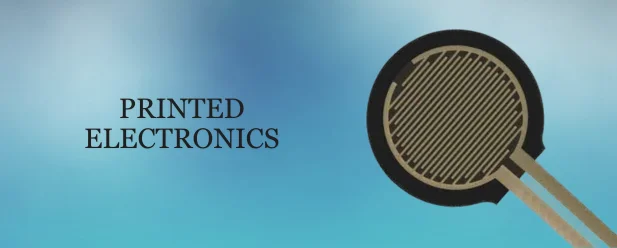Printed circuit solutions are revolutionizing how electronics are designed, enabling lightweight, thin, and durable components for various industries. The printing technique used to make electronic devices by printing on a range of substrates is collectively referred to as printed electronics. Initially developed with organic or plastic materials using carbon or silver-based inks, this technology is now widely adopted in multiple sectors.
Flexible printed circuits are now commonly used to create next-generation devices such as flexible keyboards, antennas, electronic skin patches, sensors, heaters, printed batteries, and printed LEDs. These components offer improved flexibility, durability, and seamless integration into compact and curved surfaces.
In healthcare, medical printed circuits are being utilized for wearable health monitors, biosensors, and electronic patches—enhancing patient comfort and diagnostics. In the automotive industry, automotive printed electronics provide smart interfaces, lightweight wiring systems, in-mold electronics, and printed sensors, helping manufacturers reduce weight and increase design freedom.
Printed circuit solutions are opening up endless possibilities in electronics by integrating smart functionality into paper, plastic films, textiles, metals, and 3D objects. As the demand for smarter, more affordable, and secure electronics grows, printed electronics continue to be a game-changer across medical, automotive, and industrial domains.

Printed circuit solutions refer to the process of creating electronic devices using printing technologies to deposit conductive, insulating, or semiconductive inks onto flexible or rigid substrates. Instead of traditional manufacturing, printed electronics uses screen printing, inkjet, flexographic, or gravure methods to form electronic circuits.
It is built with multiple layers including:
he foundational base material onto which all layers are printed
Forms traces, antennas, or circuit paths to carry electrical signals
Separates conductive layers and prevents of the short circuits
Can also include adhesive, graphics, or interface overlays
| Specification | Details |
|---|---|
| Substrate Materials | PET, Polyimide (PI), Paper, Glass, Fabric, PC |
| Conductive Inks | Silver, Carbon, Copper, Transparent Conductors |
| Printing Methods | Screen Printing, Inkjet Printing, Gravure, Flexo |
| Minimum Line Width | 100 μm (depending on ink and substrate) |
| Layer Types | Conductive, Dielectric, Insulating, Overcoat |
| Number of Layers | Single to multi-layer stack-ups |
Experience the perfect blend of reliability, innovation, and precision with our high-performance printed electronics—engineered for flexible, medical, and automotive applications.
| Feature | CuteK Circuits | Standard Competitors |
|---|---|---|
| Material Flexibility | Supports PET, PI, paper, fabric, polycarbonate, etc. | Limited to PET or rigid substrates |
| Ink Variety | Silver, carbon, copper, transparent, and custom blends | Mostly basic silver or carbon inks |
| Printing Precision | High-resolution prints (≤100μm) with tight tolerance | Moderate resolution (≥200μm) |
| Layer Complexity | Multi-layer stack-ups with precise alignment | Typically single or dual-layer only |
| Integration Support | Easily integrates with LEDs, batteries, sensors, antennas | Limited peripheral compatibility |
| Environmental Resistance | Environmental Resistance | Basic protection; prone to degradation |
Printed electronics involve printing conductive inks and materials onto flexible or rigid substrates to create electronic circuits and devices. They are used in applications requiring lightweight, low-cost, and flexible form factors.
Common materials include silver, carbon, and copper-based conductive inks, as well as substrates like PET, polyimide, paper, or glass.
Printed electronics are cost-effective, lightweight, flexible, and suitable for large-area applications. They enable innovative designs not possible with traditional rigid PCBs.
They are ideal for flexible sensors, smart labels, wearable devices, RFID tags, membrane switches, medical patches, and touch interfaces.
Yes, when properly designed and manufactured, printed electronics can be resistant to moisture, bending, abrasion, and chemical exposure, depending on the materials used.
Absolutely. CuteK Circuits offers full customization including layout design, ink type, substrate choice, and integration with mechanical components or lighting.
At CuteK Circuits, we combine cutting-edge technology, customization flexibility, and competitive pricing to deliver the best solutions for your needs—whether it’s printed circuit solutions, flexible printed circuits, medical printed circuits, or automotive printed electronics.
Our team specializes in designing high-performance, application-specific printed electronics that meet the strictest industry standards.
With a focus on innovation and reliability, we cater to a wide range of industries including automotive, healthcare, and industrial automation.
We use advanced printing technologies to produce compact, lightweight, and durable circuit solutions.
Partner with us for rapid prototyping, scalable manufacturing, and end-to-end support tailored to your unique requirements.
Fill out the form and our team will get back to you promptly.
Fill out the form now and our team will get back to you shortly with the perfect solution tailored to your needs.
Quick response. Expert support.